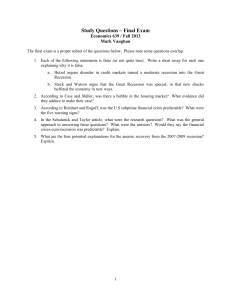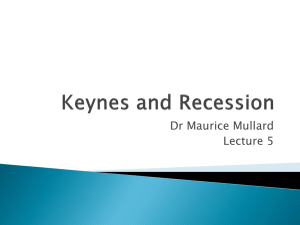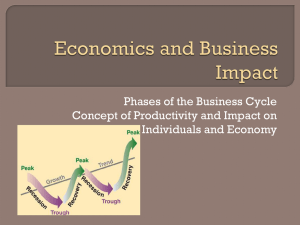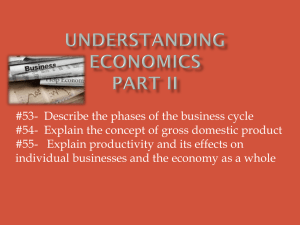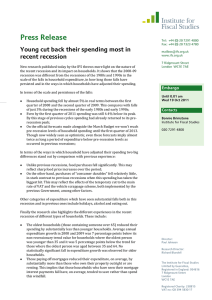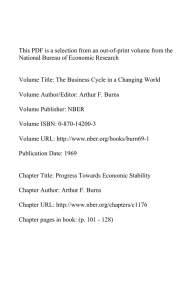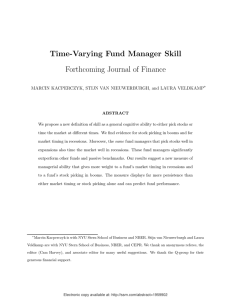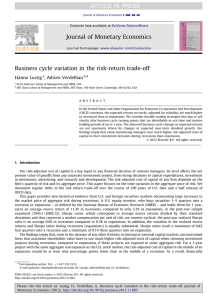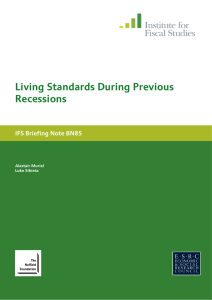Terre Haute Tribune-Star, Progress Monthly, February 2008 “Are You Stimulated Yet?”
advertisement
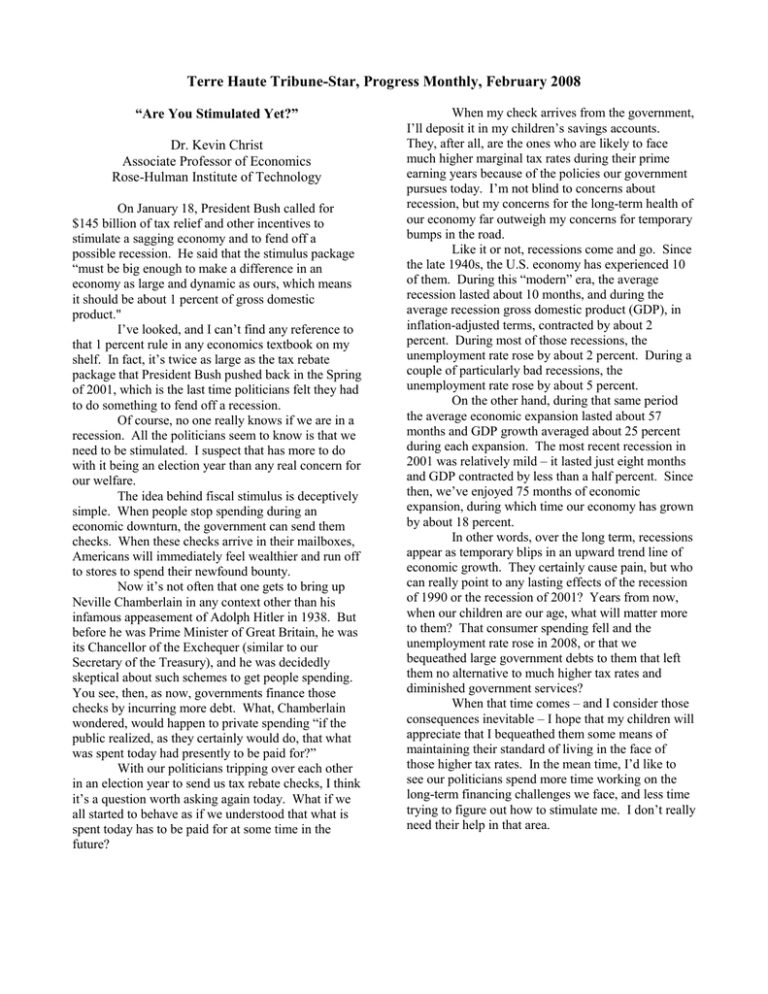
Terre Haute Tribune-Star, Progress Monthly, February 2008 “Are You Stimulated Yet?” Dr. Kevin Christ Associate Professor of Economics Rose-Hulman Institute of Technology On January 18, President Bush called for $145 billion of tax relief and other incentives to stimulate a sagging economy and to fend off a possible recession. He said that the stimulus package “must be big enough to make a difference in an economy as large and dynamic as ours, which means it should be about 1 percent of gross domestic product." I’ve looked, and I can’t find any reference to that 1 percent rule in any economics textbook on my shelf. In fact, it’s twice as large as the tax rebate package that President Bush pushed back in the Spring of 2001, which is the last time politicians felt they had to do something to fend off a recession. Of course, no one really knows if we are in a recession. All the politicians seem to know is that we need to be stimulated. I suspect that has more to do with it being an election year than any real concern for our welfare. The idea behind fiscal stimulus is deceptively simple. When people stop spending during an economic downturn, the government can send them checks. When these checks arrive in their mailboxes, Americans will immediately feel wealthier and run off to stores to spend their newfound bounty. Now it’s not often that one gets to bring up Neville Chamberlain in any context other than his infamous appeasement of Adolph Hitler in 1938. But before he was Prime Minister of Great Britain, he was its Chancellor of the Exchequer (similar to our Secretary of the Treasury), and he was decidedly skeptical about such schemes to get people spending. You see, then, as now, governments finance those checks by incurring more debt. What, Chamberlain wondered, would happen to private spending “if the public realized, as they certainly would do, that what was spent today had presently to be paid for?” With our politicians tripping over each other in an election year to send us tax rebate checks, I think it’s a question worth asking again today. What if we all started to behave as if we understood that what is spent today has to be paid for at some time in the future? When my check arrives from the government, I’ll deposit it in my children’s savings accounts. They, after all, are the ones who are likely to face much higher marginal tax rates during their prime earning years because of the policies our government pursues today. I’m not blind to concerns about recession, but my concerns for the long-term health of our economy far outweigh my concerns for temporary bumps in the road. Like it or not, recessions come and go. Since the late 1940s, the U.S. economy has experienced 10 of them. During this “modern” era, the average recession lasted about 10 months, and during the average recession gross domestic product (GDP), in inflation-adjusted terms, contracted by about 2 percent. During most of those recessions, the unemployment rate rose by about 2 percent. During a couple of particularly bad recessions, the unemployment rate rose by about 5 percent. On the other hand, during that same period the average economic expansion lasted about 57 months and GDP growth averaged about 25 percent during each expansion. The most recent recession in 2001 was relatively mild – it lasted just eight months and GDP contracted by less than a half percent. Since then, we’ve enjoyed 75 months of economic expansion, during which time our economy has grown by about 18 percent. In other words, over the long term, recessions appear as temporary blips in an upward trend line of economic growth. They certainly cause pain, but who can really point to any lasting effects of the recession of 1990 or the recession of 2001? Years from now, when our children are our age, what will matter more to them? That consumer spending fell and the unemployment rate rose in 2008, or that we bequeathed large government debts to them that left them no alternative to much higher tax rates and diminished government services? When that time comes – and I consider those consequences inevitable – I hope that my children will appreciate that I bequeathed them some means of maintaining their standard of living in the face of those higher tax rates. In the mean time, I’d like to see our politicians spend more time working on the long-term financing challenges we face, and less time trying to figure out how to stimulate me. I don’t really need their help in that area.
